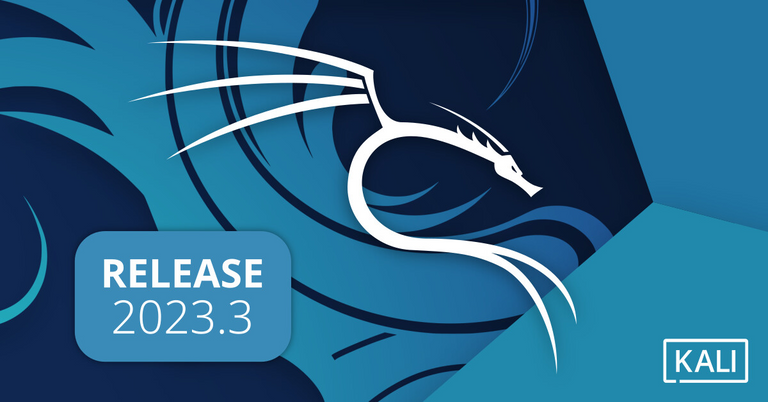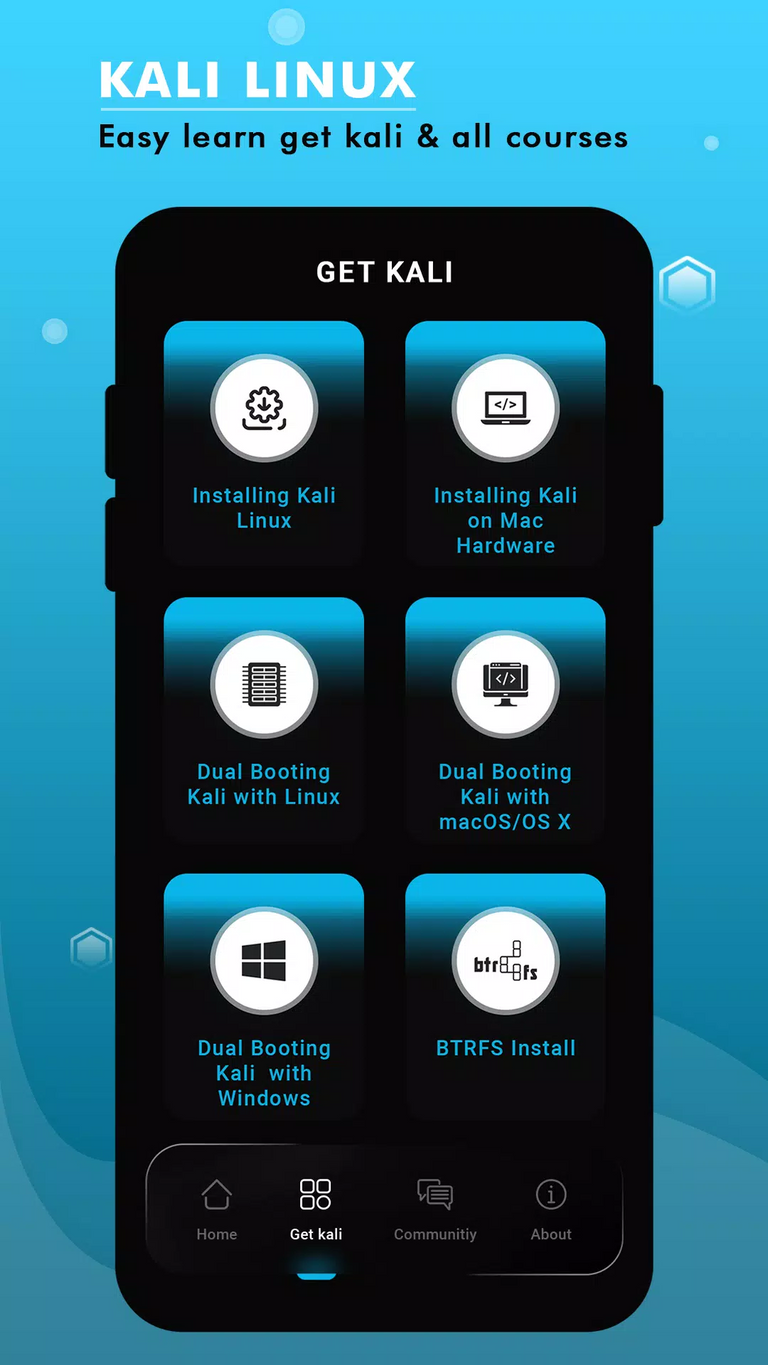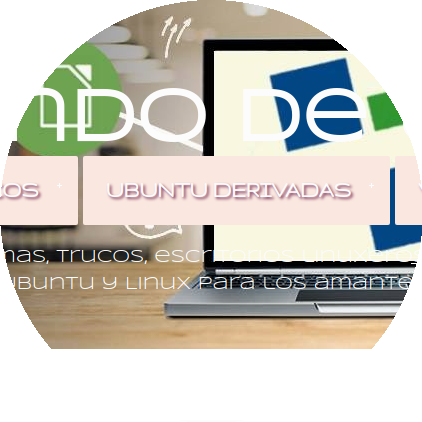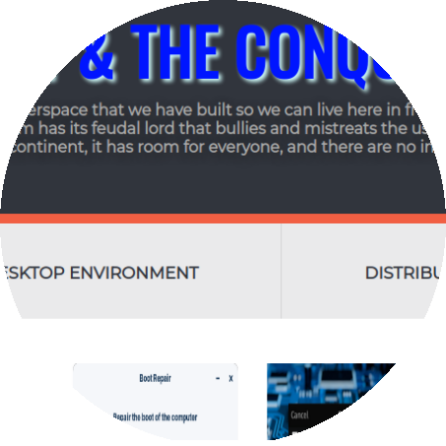
Kali Linux es una distribución basada en Debian GNU/Linux diseñada principalmente para la auditoría y seguridad informática en general.
Fue fundada y es mantenida por Offensive Security Ltd. Mati Aharoni and Devon Kearns, ambos pertenecientes al equipo de Offensive Security, desarrollaron la distribución a partir de la reescritura de BackTrack,que se podría denominar como la antecesora de Kali Linux.
Kali Linux trae preinstalados numerosos programas incluyendo Nmap (un escaner de puertos), Wireshark (un sniffer), John the Ripper (Un crackeador de passwords) y la suite Aircrack-ng (Software para pruebas de seguridad en redes inalámbricas).
Kali puede ser usada desde un Live CD, live-usb y también puede ser instalada como sistema operativo principal.
Kali se distribuye en imágenes iso compiladas para diferentes arquitecturas (32/64 bits y ARM).
Kali Linux mantiene una relación bien estrecha con los repositorios de Debian, por lo que recibe actualizaciones de seguridad tan frecuentemente como la distribución principal de Debian.
La relación de Kali con Debian.

Kali Linux 1.0 es un derivado de Debian basado en Debian Wheezy. Por lo tanto, la mayoría de los paquetes de Kali se importan sin modificar desde los repositorios de Debian.
En algunos casos, los nuevos paquetes han sido importado desde inestable o experimental, ya sea porque o bien mejora la experiencia del usuario, o porque era necesario para arreglar algunos errores de software.
Paquetes modificados.
Algunos paquetes obviamente tuvieron que ser modificados con el fin de poner en práctica algunas de las características específicas de Kali, pero Kali trata de mantener ese número de paquetes a un mínimo mediante la mejora de los paquetes ascendentes siempre y cuando sea posible (ya sea mediante la integración de la función directamente, o mediante la adición de los ganchos necesarios para que sea fácil de habilitar sin tener que modificar los paquetes ascendentes).
Cada paquete modificado por Kali se mantiene en un Repositorio Git con una rama de “debian” de modo que la actualización de un paquete bifurcado se puede hacer fácilmente con un simple git merge debian en la rama principal.
Nuevos Paquetes.

Además de esto, Kali trae muchos nuevos paquetes de Debian que son específicos para las pruebas de penetración y el campo de la auditoría de seguridad. Un gran porcentaje de estos paquetes son libres según las Directrices de Software Libre de Debian y Kali tiene la intención de contribuir paquetes a Debian y mantenerlos directamente en Debian.
Como consecuencia de esto, nos esforzamos para que los paquetes de Kali sean compatible con la Política de Debian y que sigan las mejores prácticas en el uso de Debian.
Última versión publicada.

Kali Linux 2023.3 (23/08/2023)
Descargas.

Kali Linux is designed primarily for general computer security and auditing.
Kali Linux is a Debian GNU/Linux-based distribution designed primarily for general computer security and auditing.
It was founded and is maintained by Offensive Security Ltd. Mati Aharoni and Devon Kearns, both members of the Offensive Security team, developed the distribution from the rewrite of BackTrack, which could be called the predecessor of Kali Linux.
Kali Linux comes pre-installed with numerous programs including Nmap (a port scanner), Wireshark (a sniffer), John the Ripper (a password cracker) and the Aircrack-ng suite (software for security testing in wireless networks).
Kali can be used from a Live CD, live-usb and can also be installed as the main operating system.
Kali is distributed in iso images compiled for different architectures (32/64 bit and ARM).
Kali Linux maintains a very close relationship with the Debian repositories, so it receives security updates as frequently as the main Debian distribution.
Kali's relationship with Debian.

Kali Linux 1.0 is a Debian derivative based on Debian Wheezy. Therefore, most Kali packages are imported unmodified from the Debian repositories.
In some cases, new packages have been imported from unstable or experimental, either because it either improves the user experience, or because it was needed to fix some software bugs.
Modified packages.
Some packages obviously had to be modified in order to implement some of Kali's specific features, but Kali tries to keep that number of packages to a minimum by improving upstream packages whenever possible (either through integrating the feature directly, or by adding the necessary hooks to make it easy to enable without having to modify upstream packages).
Each package modified by Kali is maintained in a Git Repository with a “debian” branch so updating a forked package can be easily done with a simple git merge debian into the main branch.
New Packages.

In addition to this, Kali brings many new Debian packages that are specific to the penetration testing and security auditing field. A large percentage of these packages are free according to the Debian Free Software Guidelines and Kali intends to contribute packages to Debian and maintain them directly in Debian.
As a result, we strive to make Kali packages compatible with the Debian Policy and follow best practices in using Debian.
Last published version.
Kali Linux 2023.3 Release (08/23/2023)
Downloads.

- Este tema ha sido tratado en los blogs que enuncio al final del post, reproduciéndolo en forma parcial y/o total. Todos los blogs que se enumeran son de mi propiedad.
- This topic has been discussed in the blogs that I list at the end of the post, reproducing it in part and/or in full. All blogs listed are owned by me.
Capturas de pantallas / Screenshots:
| Blogs, Sitios Web y Redes Sociales / Blogs, Webs & Social Networks | Plataformas de Contenidos/ Contents Platforms |
|---|---|
| Mi Blog / My Blog | Los Apuntes de Tux |
| Mi Blog / My Blog | El Mundo de Ubuntu |
| Mi Blog / My Blog | Nel Regno di Linux |
| Mi Blog / My Blog | Linuxlandit & The Conqueror Worm |
| Mi Blog / My Blog | Pianeta Ubuntu |
| Mi Blog / My Blog | Re Ubuntu |
| Mi Blog / My Blog | Nel Regno di Ubuntu |
| Red Social Twitter / Twitter Social Network | @hugorep |

| Blurt Official | Blurt.one | BeBlurt | Blurt Buzz |
|---|---|---|---|
 |  |  |  |





verry goods system
Thanks!!
Hi @hugo1954, great news! Your content was selected by curators @ten-years-before, @nalexadre to receive a special curation from BeBlurt 🎉 Don't hesitate to upvote this comment as the curators will receive 80% of the rewards for their involvement.
You can support us by voting for our witness, our decentralized funding proposal, or through delegation. You're also welcome to join our Discord server 👉 https://discord.beblurt.com
Thank you for voting and supporting my contents @beblurt.